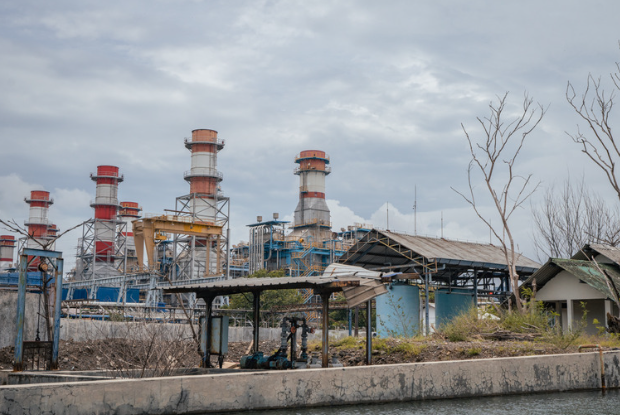

SN Aboitiz Power Project Secures Funding for 56 MW Battery Storage Systems
SN Aboitiz Power Group (SNAP), one of the leading energy providers in the Philippines, has successfully secured funding for two major battery storage projects. These projects, totaling 56 megawatts (MW) of energy storage capacity, are designed to support the country’s growing demand for reliable, renewable energy solutions. The two projects will be located in Isabela and Benguet provinces, where SNAP already has established hydroelectric plants.
The funding for these projects has been provided by several key banks, including Bank of the Philippine Islands (BPI), China Banking Corporation, and Banco de Oro Unibank, Inc. This initiative is expected to play a pivotal role in improving energy storage infrastructure, thus enhancing the efficiency and sustainability of the Philippine power grid. The two energy storage systems, which are expected to be operational by 2026, represent a significant step forward in the Philippines’ renewable energy goals.
The two projects will utilize battery energy storage systems (BESS), which will be integrated with SNAP’s existing hydroelectric power plants to create a more efficient and reliable energy production and storage network. The first project, located in Isabela, involves an expansion of the Magat BESS, which will increase its storage capacity by 16 MW. The second project, located in Benguet, will involve the Binga BESS, which will be expanded by an additional 40 MW. These energy storage systems will store excess energy produced during off-peak hours, which can then be released during peak demand times.
By storing excess energy when there is low demand, these systems will ensure that electricity is available when it is most needed, even if the renewable energy sources like hydro and solar are not generating power at that moment. This type of system is vital for providing a consistent and reliable power supply, especially in a country like the Philippines where renewable energy sources are increasingly used but can be intermittent in nature.
Energy storage is becoming an essential technology for maintaining the stability and reliability of power grids, especially as more countries and companies integrate renewable energy sources like wind and solar power. Both of these sources can be unpredictable, generating more power on sunny or windy days, and less power when the weather is calm. The introduction of large-scale battery storage systems, such as those planned by SNAP, helps mitigate this problem by storing excess power for future use.
The storage systems planned for the Magat and Binga hydroelectric plants are particularly beneficial because they allow for the capture of excess hydroelectric power, which can then be used when the natural flow of water is insufficient for power generation. These storage systems also help reduce the risk of power outages or blackouts, making them crucial to the Philippines’ energy security, especially during peak demand periods.
SN Aboitiz Power is also focused on utilizing cutting-edge technology and global expertise in the implementation of these projects. To ensure that the projects meet high-quality standards, SNAP has partnered with GEDI China Energy, a subsidiary of the China Energy Engineering Group. GEDI China Energy is known for its expertise in energy storage solutions and has experience in building energy infrastructure on a large scale.
This collaboration allows SNAP to benefit from both local and international knowledge, which will be important in executing these projects effectively. The use of international expertise also underscores the increasing global demand for advanced energy storage technology, as countries around the world work to meet sustainability and energy security targets. By working with well-established international partners, SNAP is ensuring that the battery storage projects will be successfully integrated into the existing energy infrastructure.
The energy storage projects are part of a larger effort by SN Aboitiz Power to expand its commitment to renewable energy solutions in the Philippines. SNAP is already a key player in the country’s renewable energy sector, operating several hydroelectric power plants. In fact, the company began commercial operations for a 24-MW Magat BESS project in January 2024, marking the beginning of its efforts to integrate energy storage into its renewable energy portfolio.
This is just one part of SNAP’s long-term strategy to strengthen the Philippines’ energy grid, ensuring that it can handle increasing renewable energy generation while maintaining the reliability of the power supply. With the expansion of its battery storage capacity, SNAP is positioning itself to play a leading role in the Philippines’ transition to cleaner, more sustainable energy sources.
The company’s commitment to energy storage is also aligned with the Philippine government’s efforts to achieve its renewable energy targets. As part of its commitment to the Paris Agreement and its environmental sustainability goals, the Philippines is working to increase the share of renewable energy in its power mix. By investing in energy storage technology, SNAP is not only improving the reliability of renewable energy sources but also helping the country meet its energy sustainability goals.
The integration of battery storage systems makes it possible to balance supply and demand while increasing the overall efficiency of the energy system. This is particularly important in a country like the Philippines, where renewable energy is an essential part of the future energy mix. With these storage projects, SNAP is contributing to the global effort to reduce reliance on fossil fuels and reduce carbon emissions.
In addition to the environmental benefits, these storage projects also have the potential to drive economic growth by providing a more reliable power supply for industries and households. Access to consistent energy is critical for business operations, especially for sectors that rely on continuous power, such as manufacturing, services, and technology.
By ensuring that energy is available when needed, SNAP’s battery storage projects will help businesses operate more efficiently and without interruption. Furthermore, a more stable and reliable energy grid can encourage further investment in the renewable energy sector, providing more opportunities for growth and development in the Philippines.
These projects also reflect a broader trend in Southeast Asia, where many countries are increasing their investment in renewable energy infrastructure. As the global demand for cleaner energy continues to rise, countries in this region are focusing on developing and expanding their renewable energy systems. This includes not only the development of energy storage systems but also the construction of new wind, solar, and hydroelectric power plants.
With the increasing urgency of addressing climate change, governments and private sector players are recognizing the importance of transitioning to sustainable energy systems. SNAP’s investments in energy storage technology are a clear indication of its commitment to this transition and its role in shaping the future of energy in the Philippines and beyond.
SN Aboitiz Power’s ongoing energy storage projects will help improve grid resilience and provide a more stable power supply for both businesses and households in the Philippines. By focusing on advanced storage systems that complement renewable energy production, SNAP is addressing some of the key challenges faced by energy systems worldwide, such as the intermittency of renewable energy sources.
With continued investments in energy storage and renewable technologies, SNAP is set to play a crucial role in shaping the future of energy in the Philippines. As the country moves toward a cleaner and more reliable energy future, these projects will ensure that the Philippines can meet the growing demand for energy while minimizing its environmental impact.




































